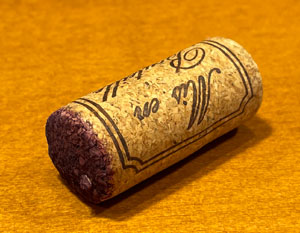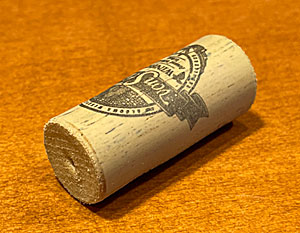


Although my observation is that the risk of cork taint in wine has been reduced over the past couple of decades, it does still exist, and some even maintain that it is an increasing problem, affecting up to 5 percent of wines. Cork taint is the result of a chemical compound that can occur in the bark of cork trees (a type of oak grown in Spain and Portugal) 2,4,6-Trichloroanisole or TCA, which produces a musty, moldy odor that people are sensitive to in varying degrees. Although harmless to health, it is a fault that negatively impacts the enjoyment of a wine. Whether because of this risk or other factors such as cost or convenience, some producers have turned to other ways to close their wine bottles. These include corks that are made from bark that has been ground up, processed to eliminate TCA, and reconstituted as corks; synthetic stoppers manufactured to look and feel as much as possible like natural cork; ever-increasingly popular screw caps; rarely-seen glass stoppers; and plastic plugs. Plastic plugs are my absolute least favorite solution. They are hard to extract, hard to reinsert, and regardless of what the plastics industry continues to assert, nearly impossible to recycle.
Setting aside the environmental implications, I recently came across what I consider the first reasonable plastic plug. It came in a bottle of Spanish wine, not surprising since it is the product of Excellent Cork, “the leading Spanish manufacturer of synthetic stoppers” according to the company itself. It is the patented Duo Stopper. Two features make it stand out. First, there is a small hole in the top, which makes insertion of a corkscrew easier and more accurate, a common difficulty with other plastic plugs. Second, one end of the plug has a smaller diameter than the other. This means that once the plug is pulled, if reinsertion is desired that task becomes much easier as the smaller end fits smoothly but securely into the opened bottle. (This is a rare issue for me, however.)
Obviously, you won’t know if you are getting a Duo with your wine until you remove the foil cap. Even if you did, I seriously doubt it would motivate anyone’s wine-buying decision one way or the other. But if your wine is closed with a Duo, consider yourself lucky, as least as far as plastic plugs are concerned.
Top of page: https://winervana.com/blog/
